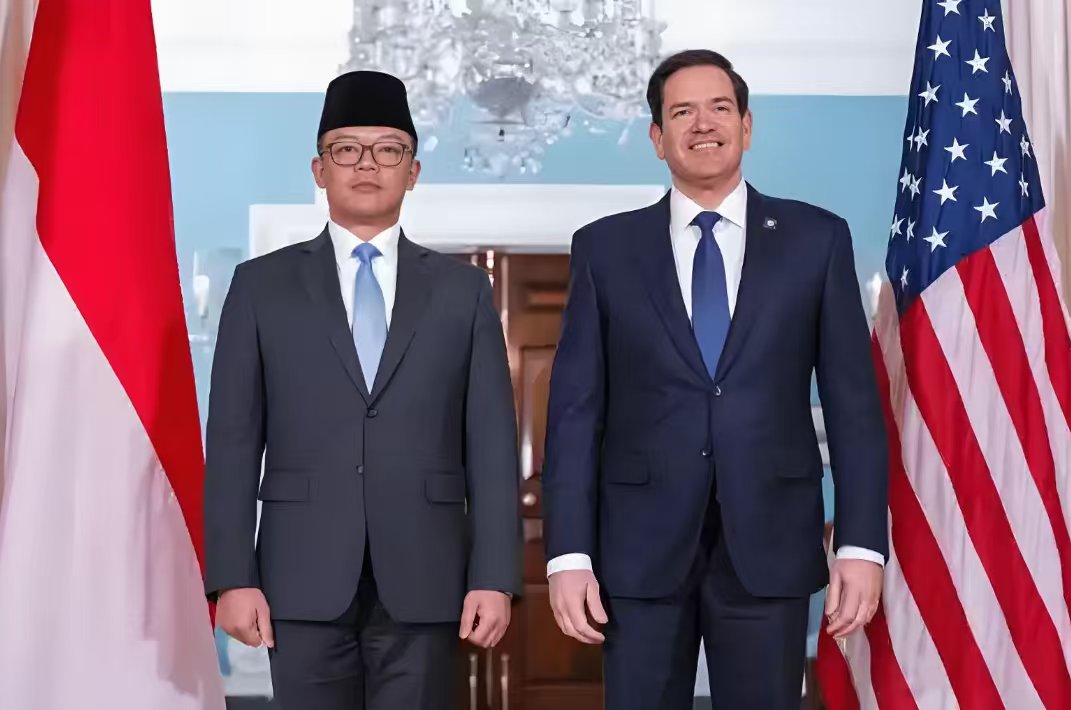
On July 22 local time, Indonesia and the United States reached a major trade agreement, which has drawn widespread attention from the international community. This agreement not only marks a major breakthrough in the economic relations between the two countries, but also reflects Indonesia's compromising attitude in the face of US trade pressure. It was even called a "great victory for American automakers, technology companies, workers, farmers, ranchers and manufacturers" by former US President Trump. From eliminating over 99% of tariffs on US imports, to easing non-tariff barriers, and then to accepting US automotive and pharmaceutical safety standards, this agreement has almost opened the "door" for US goods to enter the Indonesian market. This arrangement has provided unprecedented convenience conditions for US goods to enter the Indonesian market The agreement is expected to create at least 50 billion US dollars of new market access opportunities for US goods. In addition, Indonesia committed to purchasing US energy products worth 15 billion US dollars in the agreement. This procurement scale reflects Indonesia's significant reliance on energy supplies from the United States. In addition to energy, Indonesia has also committed to purchasing 4.5 billion US dollars worth of US agricultural products, covering major crop varieties such as wheat and soybeans. In the field of aviation manufacturing, Indonesia has agreed to purchase 50 Boeing aircraft, most of which are 777 models. Meanwhile, the United States also promised to reduce tariffs on Indonesian goods from 32% to 19%, demonstrating the sincerity of both sides in trade reciprocity.
The agreement covers multiple aspects such as tariff reduction, market access and bulk commodity procurement, and will have a profound impact on the economies, trade and other fields of the two countries. One is the impact on domestic industries and employment in Indonesia. Previously, the United States imposed zero tariffs on Indonesian aquatic products. After the agreement, the tariffs rose to 19%, significantly narrowing the profit margins of fishery exporters. The chairman of the Indonesian Aquatic Products Processing and Marketing Enterprises Association said that even a 10% tariff would be unbearable, and the current tariff level would force enterprises to lay off workers or suspend production. Indonesia has committed to purchasing 4.5 billion US dollars worth of US agricultural products (such as wheat and soybeans), which may impact its domestic agricultural market. Meanwhile, the US has reduced the steel tariff on Indonesia from 10% to 0.5%, which directly impacts the investment layout of Chinese steel enterprises in Indonesia and is very likely to trigger layoffs or production cuts in domestic steel enterprises. The Indonesian Steel Association has warned that the reduction of tariffs will weaken the competitiveness of domestic industries and lead to the flow of foreign capital to other low-tariff countries.
The second is the impact on geopolitics. The agreement between Indonesia and the United States may be regarded as a precedent for compromise with the US, prompting other countries (such as Malaysia and Thailand) to follow suit and leading to a reshaping of the regional economic landscape. Malaysia, Vietnam and other countries may demand that Indonesia provide the same market access treatment in subsequent trade negotiations; otherwise, they will question its commitment to fair competition. The United States may ask Indonesia to take sides in areas such as the South China Sea issue and 5G technology, intensifying geopolitical tensions. For instance, Indonesia's agreement to accept the US federal motor vehicle safety standards in the agreement might be regarded as a tilt towards the United States in the field of technical standards. At present, Indonesia has signed comprehensive trade agreements with many countries. The bilateral agreement with the United States may raise questions from other partners about its commitment to fair competition. Asean countries may be concerned that Indonesia gains an unfair advantage through the agreement, which could trigger trade remedy measures.
The third is the direct impact on the economy. Indonesia's exports to the United States account for only 9.9% of its total exports, but the agreement may intensify its reliance on the US market. If the United States adjusts its tariff policy again in the future, the Indonesian economy will face greater uncertainty. The US tariff policy has forced enterprises to reassess operational risks, and Indonesia needs to be vigilant against the risk of industrial chain relocation. Although its investment in the digital economy and infrastructure provides support for industrial upgrading, it is difficult to offset the negative impact of the shock on traditional industries in the short term.
To sum up, Indonesia's "compromise for market" strategy of imposing tariffs on the United States has actually placed the Indonesian economy in a more complex global industrial chain game and geopolitical risks. How to balance short-term interests and long-term development in the future will become an urgent problem for the Indonesian government to solve.

報告顯示,中國電力投資加速增長,預計2024年電網基建投資將超過5300億元。
近日,市場迎來了一則引人注目的消息:工業巨頭3M公司(MMM.N)在本周五公布了其季度業績報告,隨後股價飆升至近兩年來的
最近,外媒給OpenAI算了筆賬,今年可能要血虧50億美元。
近日,巴黎奧運會和世界鐵人三項協會聯合發布了一項重大決定,宣布因塞納河水質污染問題,原定於近期進行的奧運會鐵人三項首次下
當地時間7月18日,法國巴黎發生了一起令人震驚的持刀襲警事件。
近期,一則重大消息在國際舞臺上引起軒然大波,馬來西亞宣布加入金磚國家。
調查發現,互聯網和智能手機的使用幹擾了韓國近五分之一學生的生活。